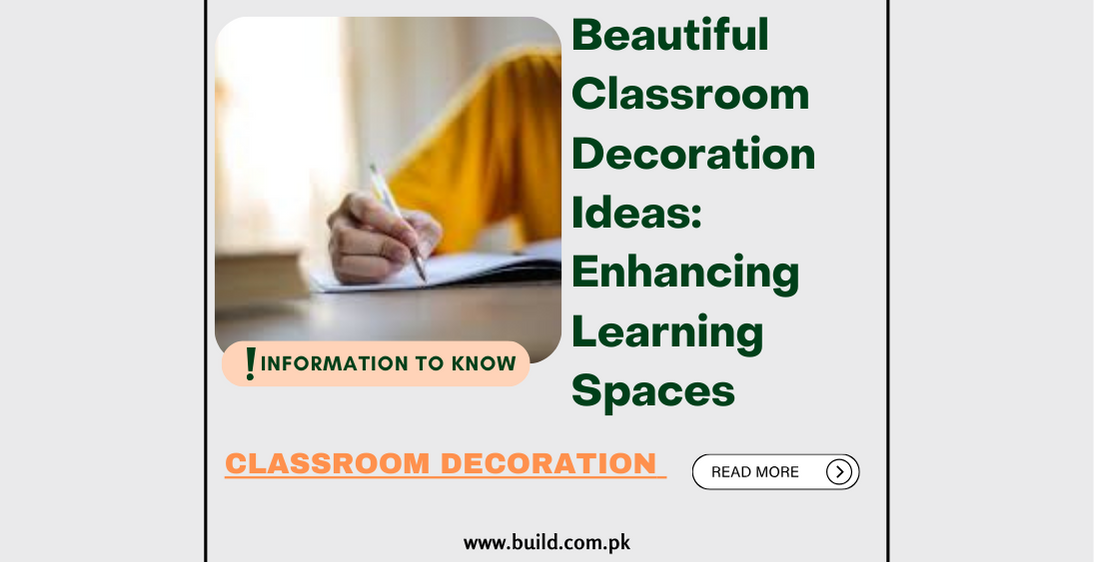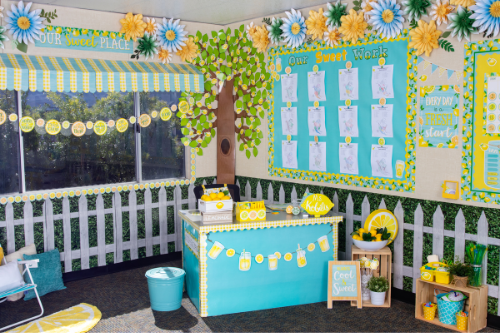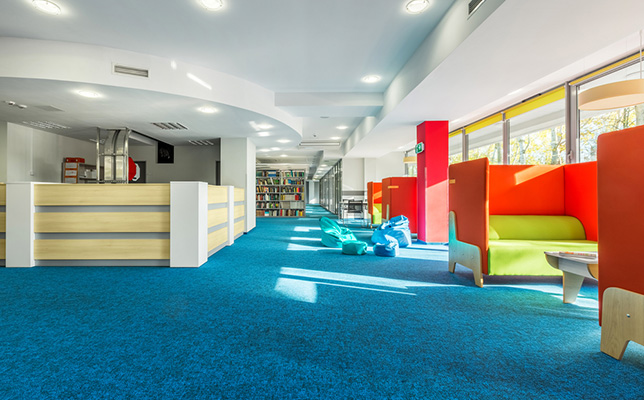Beautiful Classroom Decoration Ideas: Enhancing Learning Spaces

Introduction:
Classroom decoration goes beyond aesthetics; it shapes the
atmosphere and influences students' learning experiences. Thoughtfully designed
and visually appealing classrooms can inspire, motivate, and create a positive
impact on students' attitu des toward learning.
Understanding Beautiful Classroom Decoration Ideas
Purposeful Design Elements:
Beautiful classroom decor incorporates purposeful design
elements that balance aesthetics and functionality. Color schemes, wall
displays, furniture arrangement, and learning aids are integral components that
contribute to a well-designed classroom.
Student-Centric Approach:
Effective decoration ideas focus on creating an environment
conducive to student needs, preferences, and learning styles. They stimulate
curiosity, promote engagement, and support various learning modalities.
Different Ideas for Beautiful Classroom Decoration
Thematic Learning Zones:
Create distinct areas within the classroom dedicated to
various subjects or learning activities. Consider:
Reading Nook: Introduce a cozy corner furnished with bean
bags, cushions, and a bookshelf filled with age-appropriate books to encourage
reading habits.
Science Exploration Area: Set up a science corner with lab
equipment, educational posters, and displays showcasing scientific concepts or
experiments.
Mathematics Station: Incorporate math-focused decor like
number charts, math games, and puzzles displayed in an engaging and interactive
manner.

Inspirational Wall Displays:
Utilize wall spaces to inspire and motivate students:
Quote Walls: Use colorful posters featuring motivational
quotes, famous personalities, or inspiring messages that encourage positivity
and perseverance.
Student Work Galleries: Create display areas to showcase
students' artwork, essays, projects, or achievements, fostering a sense of
pride and accomplishment.

Functional Organization:
Efficiently organize the classroom to enhance functionality
and aesthetics:
Labeled Storage Solutions: Employ labeled bins, cubbies, or
shelves for storing supplies, books, and educational materials, promoting a
neat and organized learning environment.
Interactive Bulletin Boards: Designate bulletin boards for
subject-related information, class schedules, or a rotating display showcasing
student work or achievements.

Themed Decor and Learning Aids:
Immerse the classroom in thematic decor to engage students:
Seasonal Themes: Rotate seasonal decorations to celebrate
holidays, seasons, or cultural events, introducing diversity and cultural
awareness.
Learning Aids: Use educational posters, charts, maps, or
diagrams aligned with the curriculum to reinforce learning and act as visual
aids during lessons.

Student-Centric Decor Participation:
Involve students in the decoration process:
Student-Created Displays: Encourage students to contribute to
decor by creating collaborative artwork, themed displays, or interactive
learning materials.
Flexible Arrangements: Implement flexible seating
arrangements or movable decor elements, allowing students to participate in
rearranging the classroom layout for collaborative learning activities.

Technology Integration:
Incorporate digital elements for an interactive learning
environment:
Interactive Displays: Utilize digital screens or interactive
whiteboards for displaying educational content, engaging videos, or real-time
collaborative activities.
Digital Learning Tools: Introduce educational apps, software,
or digital tools that s upplement classroom decor, offering interactive learning
experiences.
Advantages of Beautiful Classroom Decoration
Positive Learning Environment:
Well-decorated classrooms create a positive and inviting
atmosphere, fostering a sense of belonging and comfort that encourages active
student participation and engagement.
Visual Stimulation:
Visually stimulating decor elements serve as inspirational
tools, sparking curiosity, creativity, and motivation among students, thereby
enhancing the learning experience.
Reinforcement:
Strategic decor can reinforce lessons and concepts, serving
as visual aids that reinforce educational material and facilitate better
retention and understanding among students.
Drawbacks of Classroom Decoration
Distraction Potential:
Excessive or cluttered decor may overwhelm students and lead
to distraction, hindering focus and concentration during lessons or study
periods.
Maintenance Challenges:
Elaborate decor setups might require frequent maintenance, posing challenges in upkeep and rearrangement, especially in dynamic classroom settings.
Market Availability and Factors to Consider
Accessibility of Decor:
Access to suitable decor items, educational posters, storage
solutions, and furniture pieces plays a crucial role in implementing beautiful
classroom decoration ideas.
Budget & Resource:
Consideration of budget constraints and resource allocation
for decor purchases, ensuring cost-effective yet impactful decor choices within
available means.
Educational Purpose:
Every decor item should serve an educational purpose, aligning
with the curriculum, lesson plans, and learning objectives, while also being
functional and supportive of classroom activities.
Conclusion:
Beautiful classroom decoration ideas are pivotal in creating
engaging, inspiring, and conducive learning environments. While these ideas
offer numerous advantages in fostering a positive learning atmosphere,
considerations such as distraction potentia l, maintenance challenges, and
individual preferences underscore the need for thoughtful and purposeful decor
choices.
When implemented thoughtfully, beautiful classroom decoration
ideas can transform learning spaces into vibrant, inspiring hubs that stimulate
curiosity, foster creativity, and facilitate an enriching educational
experience for students.









